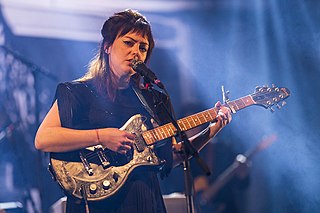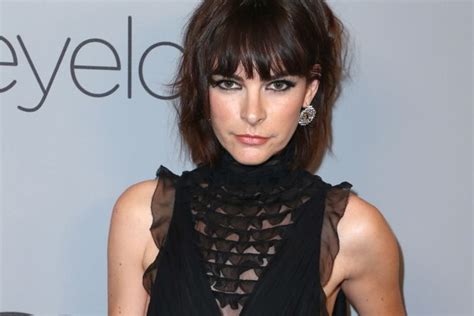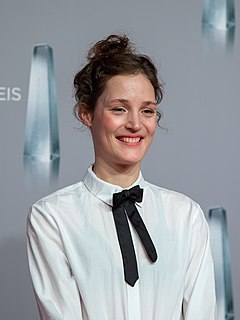A Quote by Angel Olsen
I guess that in a lot of ways, my writing is more of a character to me than something that I feel personally attached to.
Related Quotes
Even though Lyndon Johnson's presidency was in many ways scarred forever by the war in Vietnam, and destroyed in a lot of ways, he - as a character - was even larger than his presidency. Being able to get to know him well, that firsthand relationship with this large character, I think is what drew me to writing books about presidents.
I guess it's one thing to play a character and relate to a character, and it's a lot closer to me than people might think. They are obviously watching a person with another name. But when they are listening to my music, it's way more me and my story and my words . . . that is the main difference in that.
For me, the costume is very important. More the feel of it than the look of it. I take it more from the inside. So if I wear something that's heavy, it will affect my character. Is it very tight, and do I feel almost imprisoned, or is it very comfortable? It's the feeling of the costume that tells me where to go with the character.
For me, personally, I'm more comfortable with what I would call third-person entertainment, meaning watching a character that's explicitly not me and experiencing something through a character's eyes, than what I would call first-person entertainment, which is a video game in which I am the character.
I can't not have something attached to like what actually happens in real life. Like I can't do a romantic comedy without there being something where like, in the case of Annie Hathaway's character, her character ends up having Parkinson's, you know? To me, I feel like that's love, you know? Like to me. So every movie has to have that kind of sense of that.
GOOD AS NEW was born out of the idea of writing a play where the stakes were high and the collisions were of a verbal nature. Also I wanted to write a play where people were smarter than I was, and more alive than I feel normally. I became interested in the idea of characters who would surprise me. I guess one could argue that nothing comes out of you that wasn't within you to begin with, but maybe there are ways to trick yourself into becoming more an observer or an advocate for the characters.
My fellow actors inspire me a lot and really good writing inspires me. And then trying to stick to the decision to only do something that I think will challenge me and that I, personally and very subjectively, I think is good not do something because I think it will bring me a lot of money or bring me a lot of awards. I've tried to very, very rigorously be highly subjective about what I do. And that's something that I think I have basically lived by.
Transcendence or detachment, leaving the body, pure love, lack of jealousy-that's the vision we are given in our culture, generally, when we think of the highest thing. . . . Another way to look at it is that the aim of the person is not to be detached, but to be more attached-to be attached to working; to be attached to making chairs or something that helps everyone; to be attached to beauty; to be attached to music.
I have a hard time writing. Most writers have a hard time writing. I have a harder time than most because I'm lazier than most. [...] The other problem I have is fear of writing. The act of writing puts you in confrontation with yourself, which is why I think writers assiduously avoid writing. [...] Not writing is more of a psychological problem than a writing problem. All the time I'm not writing I feel like a criminal. [...] It's horrible to feel felonious every second of the day. Especially when it goes on for years. It's much more relaxing actually to work.




































